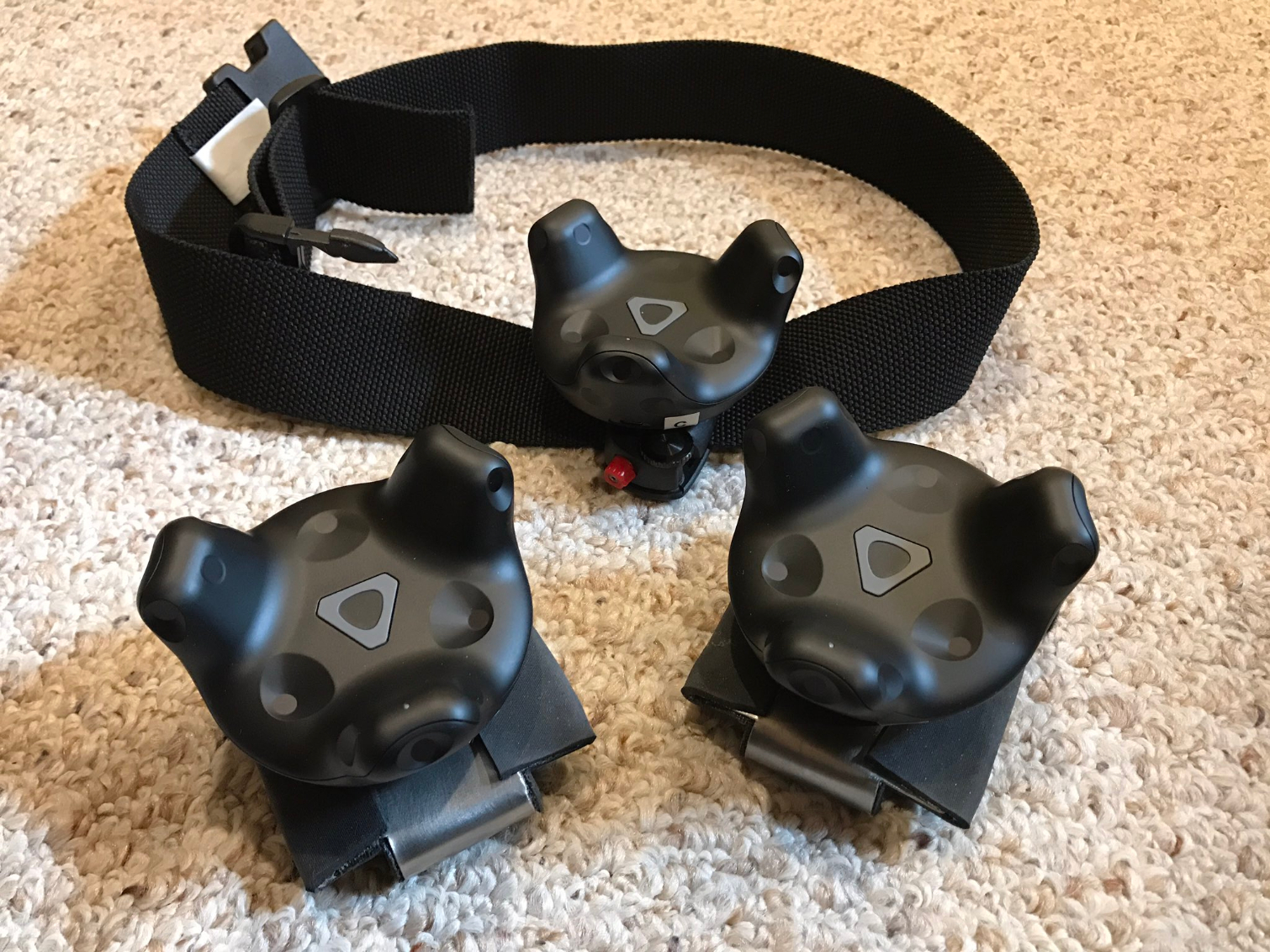HTC Releases Full Body Tracking Code, Vive Trackers Now Available For Developers
HTC is taking the Vive platform to the next level. The company is now selling Vive Trackers to developers, and it released an open source code base so devs could add full body positional tracking to their experiences.
At CES 2017, HTC revealed the next phase of the Vive platform, which includes tracked peripherals and accessories for use with the HTC Vive VR system. Some vendors are creating peripherals with Lighthouse tracking sensors embedded in them, but HTC’s Vive Tracker makes it possible to track any object in VR.
The Vive Tracker device features an array of Lighthouse IR sensors, a USB port, and set of pins that hardware vendors can use to add interactive buttons to their peripherals, as well as a standard tripod thread for mounting it to hardware.
The Vive Tracker should enable a wide variety of experiences and accessories for the Vive platform. During CES, we saw rifle and pistol peripherals and a VR camera device. HTC also demonstrated a firefighter simulation and a tracked baseball bat for a batting simulation. Other use-cases for the Vive Trackers include tracked boxing gloves and hand tracking. And, if you have three trackers, you can do full body tracking.
HTC gave away 1,000 trackers to developers over the last three months, and Cloudgate Games managed to get three of the first units. The developer started experimenting with full body tracking using extra Vive controllers late last year, and HTC quickly sent trackers to them so they could perfect the system, which they showed to us at GDC.
HTC also got to work creating its own full body tracking solution, which is now freely available. HTC released its full body tracking code base on GitHub and is encouraging developers to add it to their games. Like Cloudgate’s system, HTC’s full body tracking solution also requires three Vive Trackers to work.
HTC is rolling out the Vive Trackers in a staggered launch. There’s no point in releasing Vive Trackers to the public before hardware vendors have had a chance to create peripherals for them or before developers can make VR experiences for the trackers. Starting today, developers can purchase Vive Trackers so they can start work on those accessories and experiences. Each Tracker sells for $99, so a full body tracking system will set you back just about $300.
Get Tom's Hardware's best news and in-depth reviews, straight to your inbox.
The Vive Tracker consumer launch is expected later this year with a range of accessories and experiences to complement the trackers.
Kevin Carbotte is a contributing writer for Tom's Hardware who primarily covers VR and AR hardware. He has been writing for us for more than four years.
